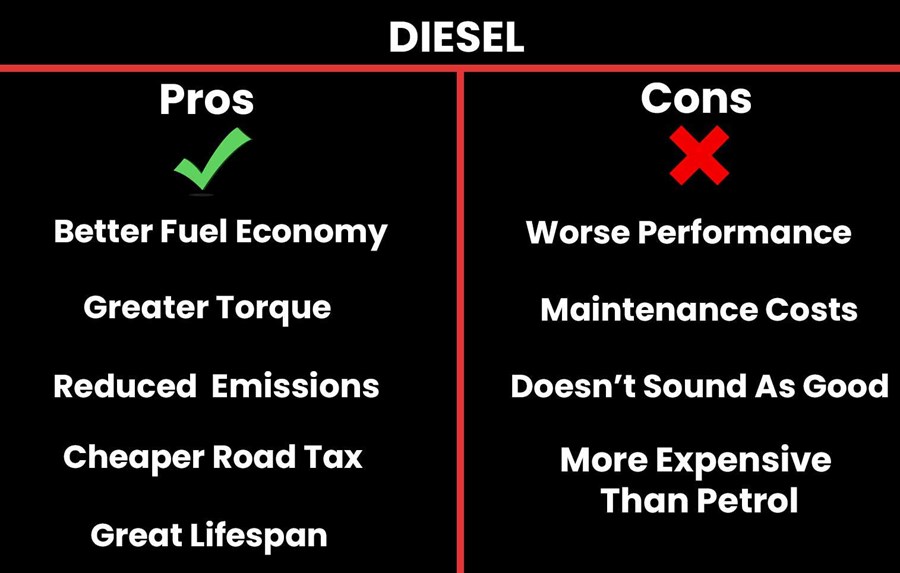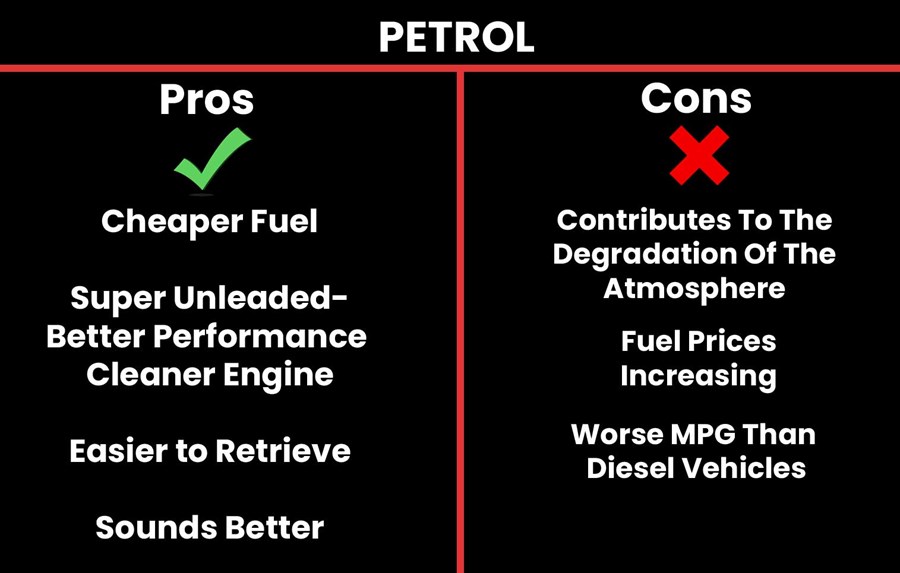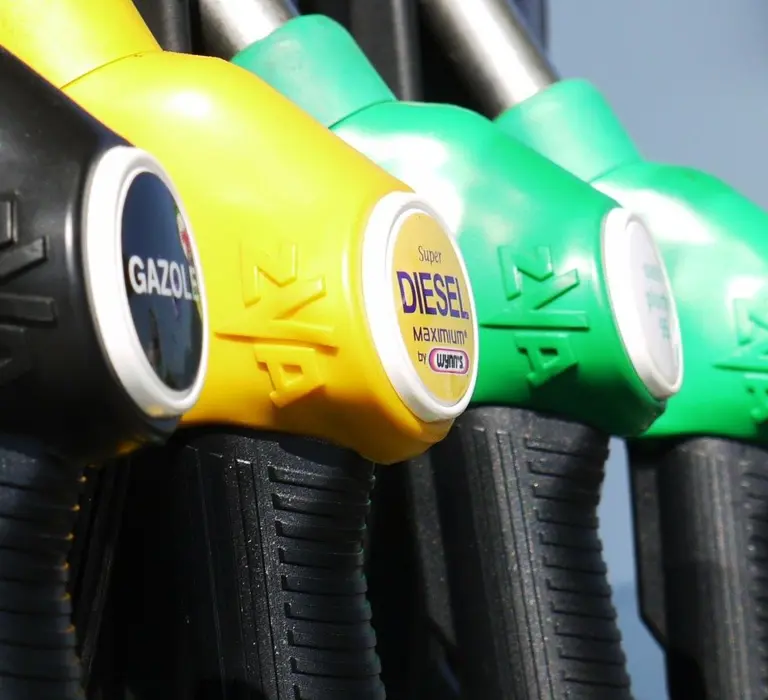Diesel vs Petrol
When coming to find the right car it's always important to consider what are thought to be the minor details like picking the right paint and interior features. However, a big decision is choosing between a diesel or petrol engine. People who wouldn't consider themselves as petrolheads or car enthusiasts may not see the difference between the two fuel types, but surprisingly they can affect you in very different ways.
Why Choose Diesel?
If you are an avid saver of money and like to reduce the cost of living at every point, then choosing a diesel engine may be for you. Yes, they tend to be more expensive to buy but to lease its a marginal difference and certain special offers can usually take that problem away. It also may seem more expensive as it costs more at the garage when you come to fill up, however diesel fuel tends to last way longer (15-20% longer). That being said; it makes the most sense to use a diesel engine when you tend to drive long distances. This is because a diesel engine operates most efficiently at a constant warm temperature and stop-start traffic means that the engine will constantly vary. Drivers who also use diesel engines pay less road tax because there are fewer emissions omitted, so costs will be cut that way also.
You may also have heard that diesel engines are better for towing and pulling loads, and are most commonly the engines found in large trucks. This is because they generate greater torque than petrol engines. The reason as to why diesel has better fuel economy is ruled down to the fact that they generate substantial power from a smaller amount of fuel in comparison to petrol due to its higher compression fuel injection engines.

Why Choose Petrol (Unleaded)?
On the other side, many people stay loyal to unleaded fuel for a variety of reasons. At the petrol station, unleaded fuel is ultimately the cheaper option, however, the fuel doesn't retain as well. If you tend to do shorter journeys to work, then a petrol car will be more beneficial to you. Not only will this save in fuel costs, but petrol cars don’t have the worry of clogging the diesel particulate filter (PTF) like in diesel vehicles, which can amount to a large cost if it needs replacing.
If you are an avid car enthusiast or own a performance vehicle and want to see the true capabilities of your vehicle, for an increased cost, you can use 'super unleaded' petrol for your tank. This is ultimately better fuel as it has a higher octane rating. The car is actually likely to have better engine performance with areas such as acceleration and slightly better fuel consumption, but ultimately it's better for your vehicle's overall health and could save later costs.

Future Motor Industry
Pros and Cons of Petrol
The early 2000s saw the prospect of using electric vehicles increase due to the introduction of Tesla and the benefits to both the environment and the user with the use of an electric motor. Using an electric vehicle means that you have cheap running costs and pay no road tax as you produce zero fuel emissions. A popular type of car that we have noticed become more popular in recent years are hybrid vehicles which include two engines ( electric motor + petrol/diesel). Summed up, the electric motor supports the traditional standard engine, which allows your fuel to be more efficient.
Another fuel alternative that has come about in recent years is the use of hydrogen vehicles and a great example of this is the Toyota Mirai. Although expensive, hydrogen vehicles also produce zero emissions as the only byproduct released is water.
